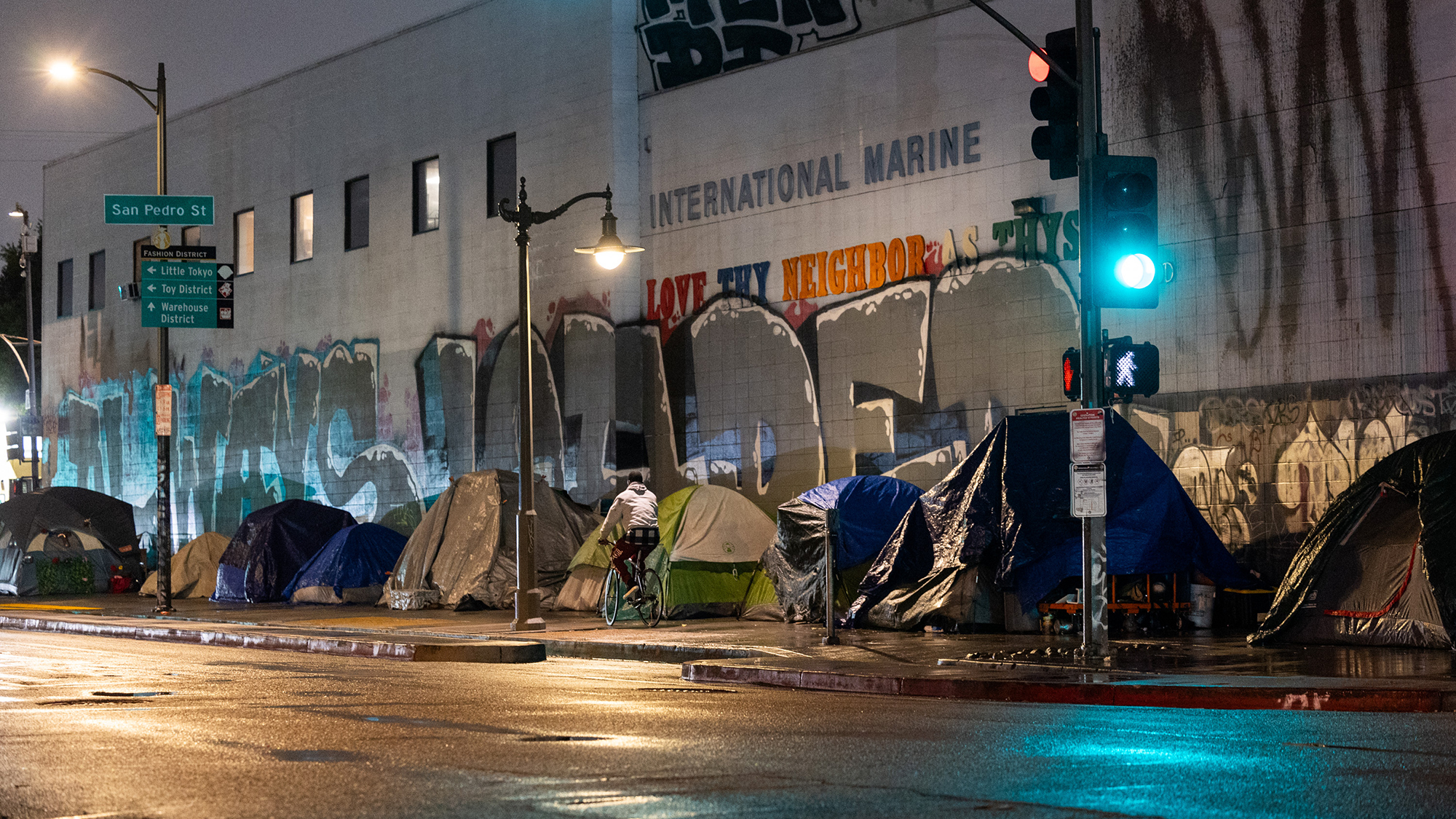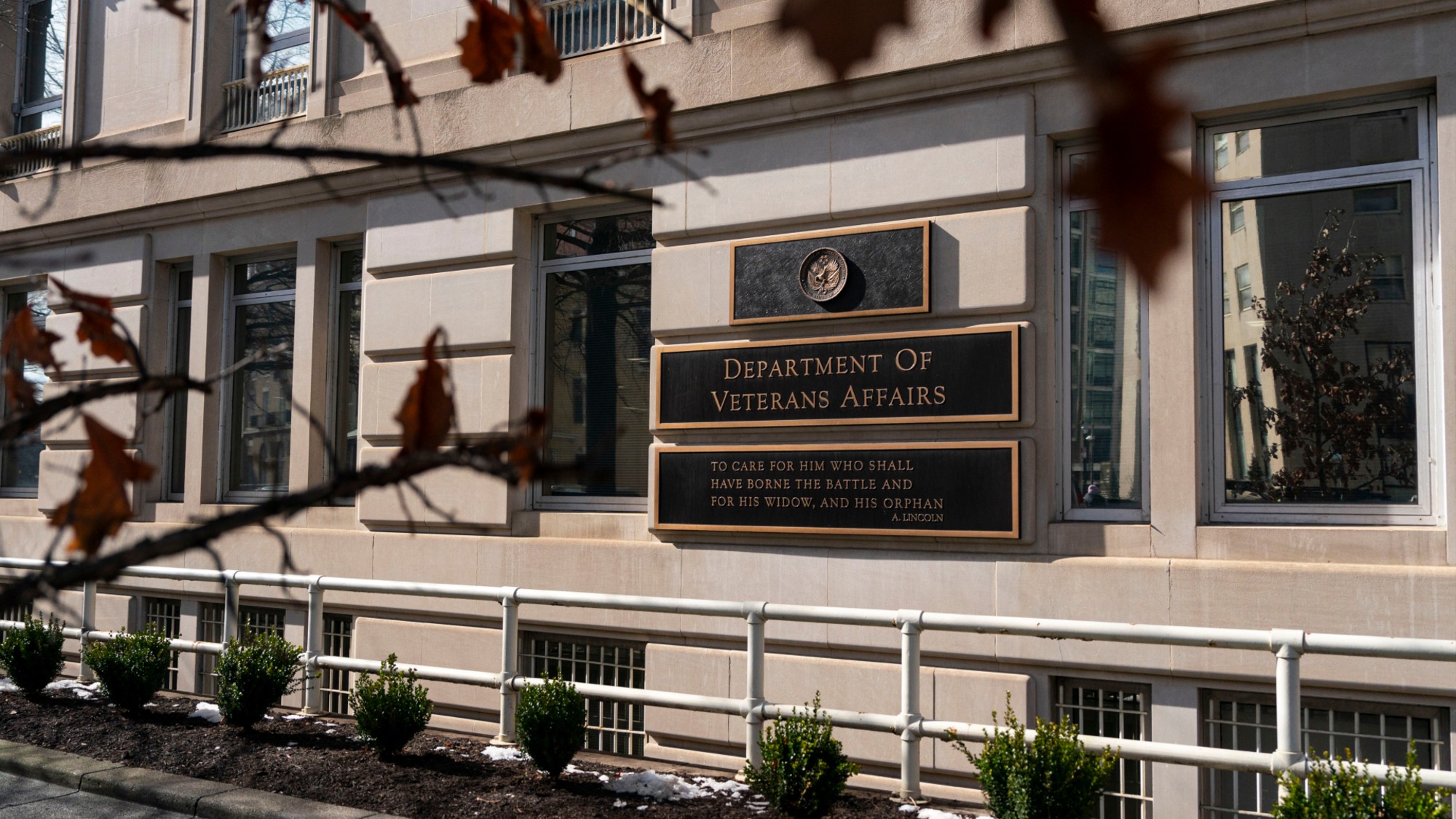Why is Britain so bad at tackling homelessness?
'Radical and ambitious' solutions needed to increase housebuilding, social housing and financial support

A free daily email with the biggest news stories of the day – and the best features from TheWeek.com
You are now subscribed
Your newsletter sign-up was successful
Labour's deputy leader Angela Rayner plans to establish a new civil service unit tasked with ending the UK's homelessness emergency.
In an approach similar to that used by former Labour PM Tony Blair, Rayner will set up an "Ending Homelessness Unit", a branch of the civil service that will be "modelled on the Blair-era Rough Sleeping Unit", said Bloomberg.
But the new unit's remit would go further than that of Blair's New Labour programme. It intends to reach not only those who are rough sleepers but also people "who lack a permanent home, [are] sleeping in shelters or moving regularly between hostels, bed-sits and friends' homes", said the news site.
The Week
Escape your echo chamber. Get the facts behind the news, plus analysis from multiple perspectives.

Sign up for The Week's Free Newsletters
From our morning news briefing to a weekly Good News Newsletter, get the best of The Week delivered directly to your inbox.
From our morning news briefing to a weekly Good News Newsletter, get the best of The Week delivered directly to your inbox.
While the common perception of homelessness is of someone sleeping rough on the street, is it largely those living in temporary accommodation. By this measure, the UK holds the "ignominious title" of being the worst in the world, said John Burn-Murdoch in the Financial Times, with an astonishing one in 200 households living in emergency lodgings outside the formal housing sector.
What did the commentators say?
According to anonymous sources familiar with the Labour plans, the unit would "sit within a newly created Office of the Deputy Prime Minister", which Rayner "intends to use as a power base at the heart of government", said Bloomberg. The unit would have its own dedicated staff to drive policy across government departments should Labour win power in July's general election.
But the Labour Party manifesto, released yesterday at an event in Manchester, has been criticised by some in the charity sector for its "vague references to homelessness" and offering little for those on the margins, said Big Issue. In particular, it failed to "include a clear target on reducing rough sleeping".
"We would have liked to have seen targeted pledges to end the homelessness crisis," said Sian Aldridge, interim CEO of Welsh homelessness and rough sleeping charity The Wallich. "Even key, popular commitments such as scrapping the Vagrancy Act and raising the Local Housing Allowance in line with inflation haven't been considered."
A free daily email with the biggest news stories of the day – and the best features from TheWeek.com
Neither does the manifesto commit to any new spending on ending homelessness. It instead promises a "new cross-government strategy", although policy proposals such as youth hubs, 8,500 additional mental health staff and an end to Section 21 evictions will "target the causes of homelessness", said the magazine.
Recent government figures show a record number of children in the UK are currently affected by not having a home, while the total number of people classed as homeless in the UK has hit a new high this year, said Big Issue. The statistics are "all the more shocking" given how close the UK was to eradicating rough sleeping two decades ago, "with the last Labour government cutting rough sleeping by two-thirds by 2001", said the Institute for Government (IfG).
But homelessness can be "a notoriously difficult thing to quantify" as well as "a moving target and often hidden from view", said Big Issue.
The UK's ignoble position on temporary accommodation is due to three main factors, said Burn-Murdoch in the FT: "woefully inadequate rates of housebuilding, a dwindling social housing sector and the erosion of financial support for those unable to afford market rents".
Relative to population size, the UK builds fewer homes than most other developed countries, which has, in turn, set private sector rents soaring. At the same time the social housing sector has shrunk by a quarter since the 1970s, "slowly closing a crucial safety valve", said Burn-Murdoch. This has been further compounded by the repeated freezing of housing benefits. as a study by the Institute for Fiscal Studies has shown.
What next?
While today's situation is not the same as in the 1990s, "many lessons from the success Labour had twenty years ago should inform any new approach", said the IfG, including strong cross-government coordination, a committed political leadership and ambitious target-setting.
A more "radical and ambitious" approach to ending homelessness could be to adopt the Finnish "housing-first model, giving everyone who is homeless a home (not a bed, a hostel, or a place in homelessness accommodation), and providing support to those who need it", said Crisis CEO Matt Downie, speaking to The New Statesman.
A 2020 pilot in England showed remarkable results but concluded that "accessing affordable and suitable accommodation continues to be a major challenge", said the FT.
It is a proven, "simple yet transformative idea", Downie said – "stop spending time and money managing homelessness, and instead provide the housing required for those most in need, as part of a housing strategy for all".
Sorcha Bradley is a writer at The Week and a regular on “The Week Unwrapped” podcast. She worked at The Week magazine for a year and a half before taking up her current role with the digital team, where she mostly covers UK current affairs and politics. Before joining The Week, Sorcha worked at slow-news start-up Tortoise Media. She has also written for Sky News, The Sunday Times, the London Evening Standard and Grazia magazine, among other publications. She has a master’s in newspaper journalism from City, University of London, where she specialised in political journalism.
-
 ‘Restaurateurs have become millionaires’
‘Restaurateurs have become millionaires’Instant Opinion Opinion, comment and editorials of the day
-
 Earth is rapidly approaching a ‘hothouse’ trajectory of warming
Earth is rapidly approaching a ‘hothouse’ trajectory of warmingThe explainer It may become impossible to fix
-
 Health insurance: Premiums soar as ACA subsidies end
Health insurance: Premiums soar as ACA subsidies endFeature 1.4 million people have dropped coverage
-
 ‘Something close to a universal rallying cry’
‘Something close to a universal rallying cry’Instant Opinion Opinion, comment and editorials of the day
-
 ‘Care fractures after birth’
‘Care fractures after birth’instant opinion Opinion, comment and editorials of the day
-
 ‘A legacy news brand brings a visibility of its own’
‘A legacy news brand brings a visibility of its own’Instant Opinion Opinion, comment and editorials of the day
-
 Fox’s Kilmeade sorry for ‘just kill’ homeless remark
Fox’s Kilmeade sorry for ‘just kill’ homeless remarkSpeed Read Kilmeade’s ‘rare on-air apology’ also served as Fox News’ response to the controversy
-
 Hostile architecture is 'hostile — to everybody'
Hostile architecture is 'hostile — to everybody'Instant Opinion Opinion, comment and editorials of the day
-
 Trump executive order targets homeless
Trump executive order targets homelessSpeed Read It will now be easier for states and cities to remove homeless people from the streets
-
 'Is it even possible to enjoy a trip without contributing to the problem?'
'Is it even possible to enjoy a trip without contributing to the problem?'Instant Opinion Opinion, comment and editorials of the day
-
 How could Trump ending a VA mortgage program leave veterans on the streets?
How could Trump ending a VA mortgage program leave veterans on the streets?Today's Big Question Vets could face foreclosure as a result of the White House's actions